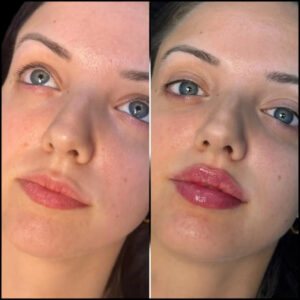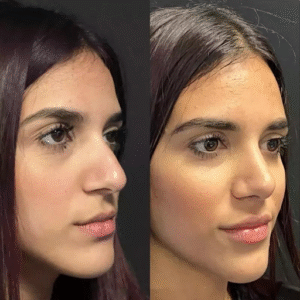The dream of holding a child is a universal one, yet for a growing number of individuals and couples, the path to parenthood is not a straightforward one. Female infertility, often caused by factors like age-related diminished ovarian reserve, premature ovarian failure, or certain genetic conditions, can make conception with one’s own eggs impossible. It is in this space of grief and challenge that the remarkable option of female egg donation emerges—a selfless act that creates a family where one might not have otherwise been possible.
This blog is a deep dive into the complex, multi-faceted world of female egg donation. It’s a journey that involves intricate medical science, a rigorous screening process, and a powerful emotional landscape for both the donor and the recipient.
The Scientific Process: A Meticulous Dance of Hormones and Technology
Female egg donation is a cornerstone of modern assisted reproductive technology (ART). The process involves two primary parties: the egg donor, a fertile woman who provides the eggs, and the recipient, the individual or couple who will use the eggs to achieve a pregnancy.
The Donor’s Journey: A Commitment to Compassion
Becoming an egg donor is not a decision made lightly. It is a significant commitment of time, energy, and physical resources. The donor’s journey begins with a comprehensive screening process that is far more detailed than a standard health check. It includes:
- Medical Evaluation: A full physical exam, blood tests to check hormone levels and screen for infectious diseases, and genetic testing to identify any inheritable conditions.
- Psychological Evaluation: This is a crucial step that ensures the donor is emotionally and mentally prepared for the process. A fertility counselor or psychologist will discuss her motivations, her understanding of the long-term implications, and her emotional readiness to relinquish a biological connection to a future child.
- Lifestyle and Family History Review: Donors must provide a detailed personal and family medical history to ensure the best possible health outcomes for the future child.
Once a donor is medically and psychologically cleared, she begins a cycle of medication. For approximately 10 to 14 days, she will self-administer daily hormone injections to stimulate her ovaries to produce a number of mature eggs, rather than the single one produced in a natural cycle. Throughout this phase, she is closely monitored with frequent blood tests and ultrasounds to track the growth of the egg-containing follicles.
When the eggs are deemed mature, they are retrieved in a minor surgical procedure called an egg retrieval or follicular aspiration. Performed under light sedation, a doctor uses an ultrasound-guided needle to gently aspirate the fluid and eggs from the ovarian follicles. The procedure typically takes 20-30 minutes, and the donor is able to return home after a short recovery period.
The Recipient’s Journey: Preparation and Hope
For the recipient, the journey is one of careful preparation and eager anticipation. The recipient’s body is prepared to receive an embryo by taking hormone medications, primarily estrogen and progesterone, to thicken her uterine lining.
Simultaneously, the retrieved donor eggs are fertilized with sperm from the recipient’s partner or a sperm donor in a laboratory setting—a process known as in vitro fertilization (IVF). The resulting embryos are cultured for a few days, and then the highest quality embryo(s) are transferred into the recipient’s uterus. The remaining viable embryos can be frozen for future use. The pregnancy that may follow is biologically no different from any other, with the recipient carrying and nurturing the child to term.
The Emotional and Ethical Considerations: More Than a Transaction
While the medical process is a miracle of modern science, the true heart of egg donation lies in its emotional and ethical complexities.
For the Recipient: The decision to use donor eggs is often the culmination of a long and difficult journey with infertility. It can bring a mix of emotions, including profound relief, immense gratitude, but also a quiet sense of grief over the loss of a genetic connection. Acknowledging and processing this grief is vital for the intended parents to form a deep, loving bond with their future child. The shift from “my genes” to “my child” is a powerful emotional transition, and counseling is often an indispensable part of this process.
For the Donor: For the donor, the act is an extraordinary expression of altruism. However, it is essential for her to understand the long-term implications of her decision. The modern approach to egg donation is moving away from guaranteed anonymity. With widespread genetic testing and the rise of online registries, a child conceived through donation may have the ability to seek out their genetic origins in the future. Reputable clinics and agencies educate donors about this possibility and the various levels of “openness” available, from anonymous to identity-release to open donation. For many donors, this knowledge provides a sense of peace and a clearer understanding of the legacy they are creating.
Legal and Financial Safeguards: The legal framework surrounding egg donation is designed to protect all parties. A comprehensive legal contract is a non-negotiable part of the process. It explicitly states that the donor relinquishes all parental rights to any child born from her donated eggs. For this reason, both the donor and the intended parents are required to have separate legal representation to ensure their rights are protected.
The financial aspect is also a significant consideration. While the donor is compensated for her time, effort, and the physical discomfort of the process, it is ethically considered “compensation” rather than a “sale” of eggs. This is an important distinction to prevent undue financial coercion.
A New Definition of Family
In the end, female egg donation challenges traditional definitions of family and biological connection. It highlights that the most powerful bonds are not forged in genes, but in the intentionality of love, the act of nurturing, and the shared journey of a life. The child born from egg donation is a living testament to this truth—a cherished miracle born from one woman’s generosity and another’s unwavering hope. The journey, from the moment a woman realizes she needs to use donor eggs to the moment she holds her child for the first time, is one of the most profound and beautiful stories of modern parenthood.

